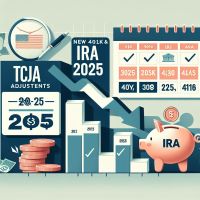It’s Sunday night and you are sitting down to dinner when you get the call, its your renter and the toilet is leaking water everywhere. You keep saying that you want to sell the property but the amount of taxes you would ow stops you dead in your tracks. If you have appreciated real estate and no longer want to be a landlord, then a 1031 exchange into real estate owned by a Delaware Statutory Trust may be your answer.
WHAT IS A 1031 EXCHANGE?
A 1031 real estate exchange is a transaction in which you sell your rental or investment property and defer all the tax that would otherwise be due on the sale, by putting the proceeds to a new investment property or properties. By deferring taxes, you will have more money currently available for investment. This increased purchasing power gives you the extra leverage to acquire real estate with significantly higher investment benefits than if you sold the original property, paid all the taxes associated with the sale and purchased a new property.
WHAT IS A DELAWARE STATUTORY TRUST?
A Delaware Statutory Trust, or DST, is a legal entity created as a trust under Delaware statutory law. Investors in a DST own a pro rata interest in the trust and have the right to receive distributions from the operation of the trust, either from rental income, or from the eventual sale of the assets. IRS Revenue Ruling 2004-86 determined that a beneficial interest in DST that owned real estate assets would be considered a “direct interest in real estate” and, thus, could qualify as a tax-deferrable real estate investment. At the completion of a DST investment, beneficial owners could engage in a 1031 exchange by purchasing beneficial interests in another eligible real estate investment. Likewise, an investor who sells a tax-deferrable real estate investment can purchase beneficial interests in a DST as a like-kind replacement property to complete their 1031 exchange.
WHAT KIND OF PROPERTIES ARE AVAILABLE IN A DST TRUST INVESTMENT?
When investing in real estate through a DST you are putting your investment in with up to 499 fellow investors. This allows you to purchase much larger projects than you could afford on your own. There are a large variety of properties to choose from including hospitals, apartment buildings, retail space, or any number of other options. Owning real estate through DST trust carries the same pros and cons of a real estate investment but with the following exceptions.
PROS OF A DST 1031 EXCHANGE
• Defer any taxes due on the sale of real estate
• Move from active to passive management, no more Sunday night calls
• DST can still be left to beneficiaries at a stepped-up basis
• A variety of properties available to easily complete 1031 exchange in time frame required
• Move from a smaller property to a larger property with potentially more income due to leverage and unpaid taxes as part of the investment
CONS OF A DST 1031 EXCHANGE
• Owner must qualify as an accredited investor (net worth of 1 million dollars or $200,000 a year income)
• Only for larger investors, $100,000 is the minimum investment
• Move from active to passive management, this is a double-edged sword for some because you will not control the new investment
• Tax deferred but not tax free, someday someone will have to pay the taxes
If you are considering a 1031 exchange in real estate, there are many other things to consider than what we have covered. Davis Capital Management partners with real estate experts as well as large national institutions in this area. If you would like to learn more, we would be happy to discuss what options may be available if you are considering a DST 1031 exchange.




